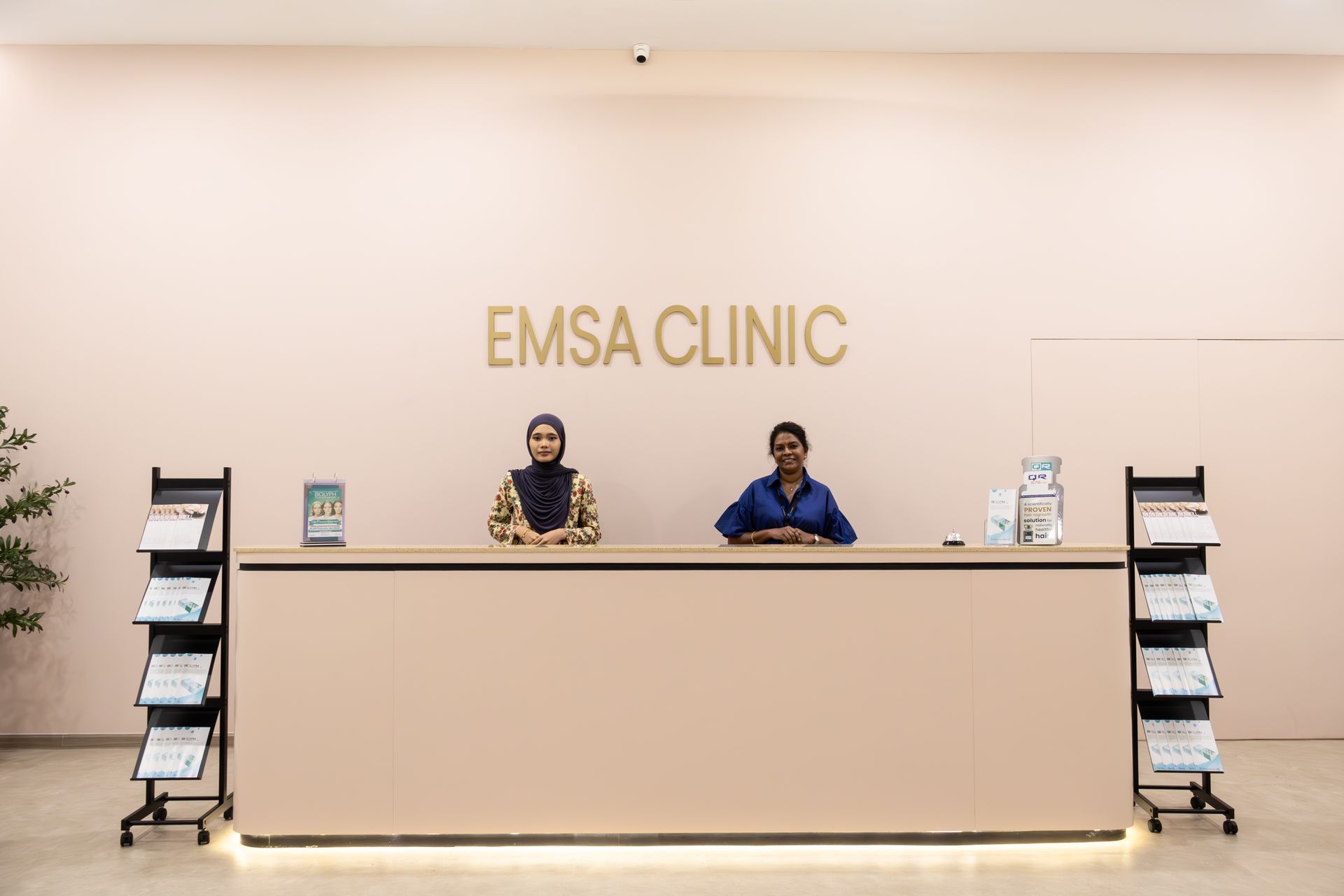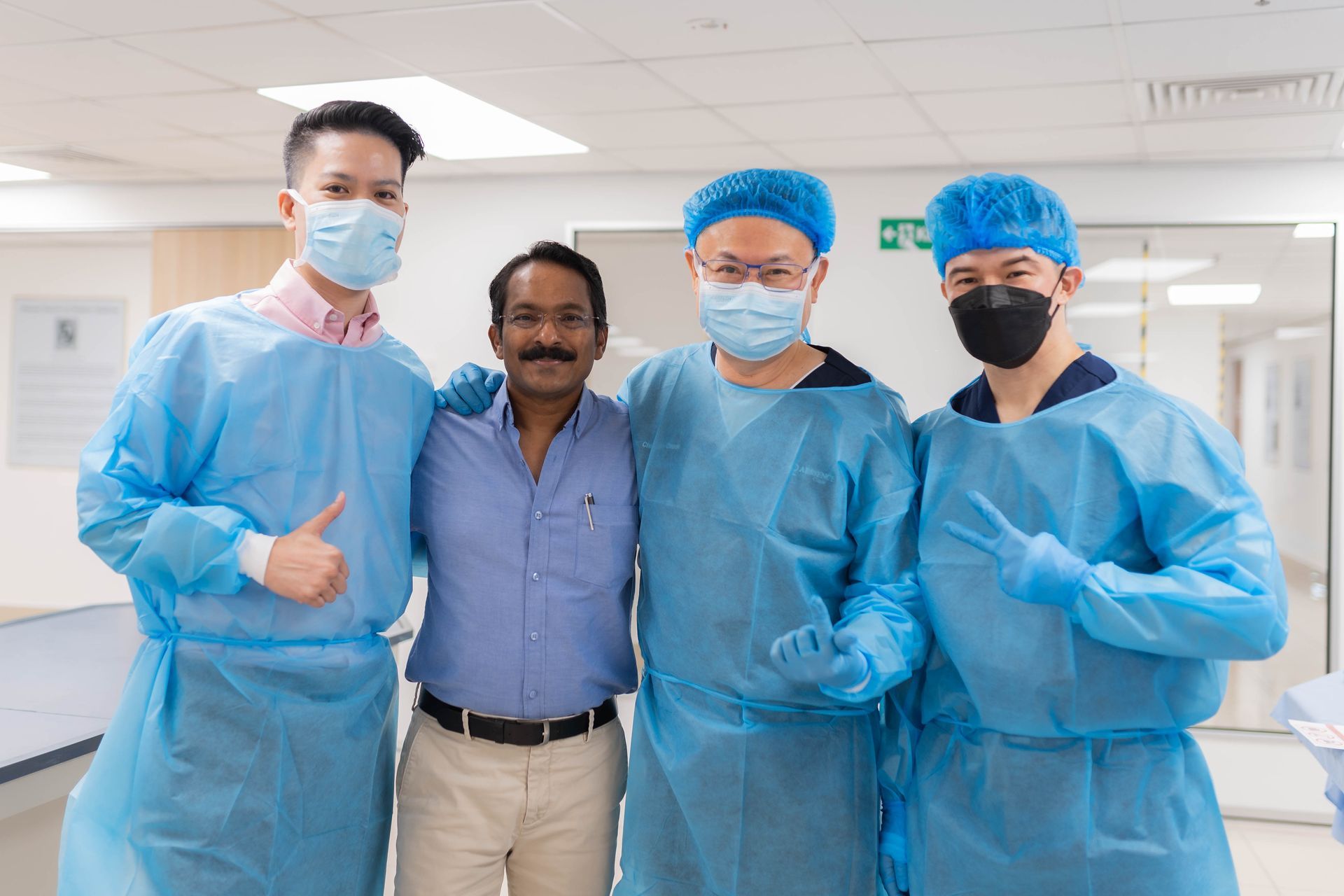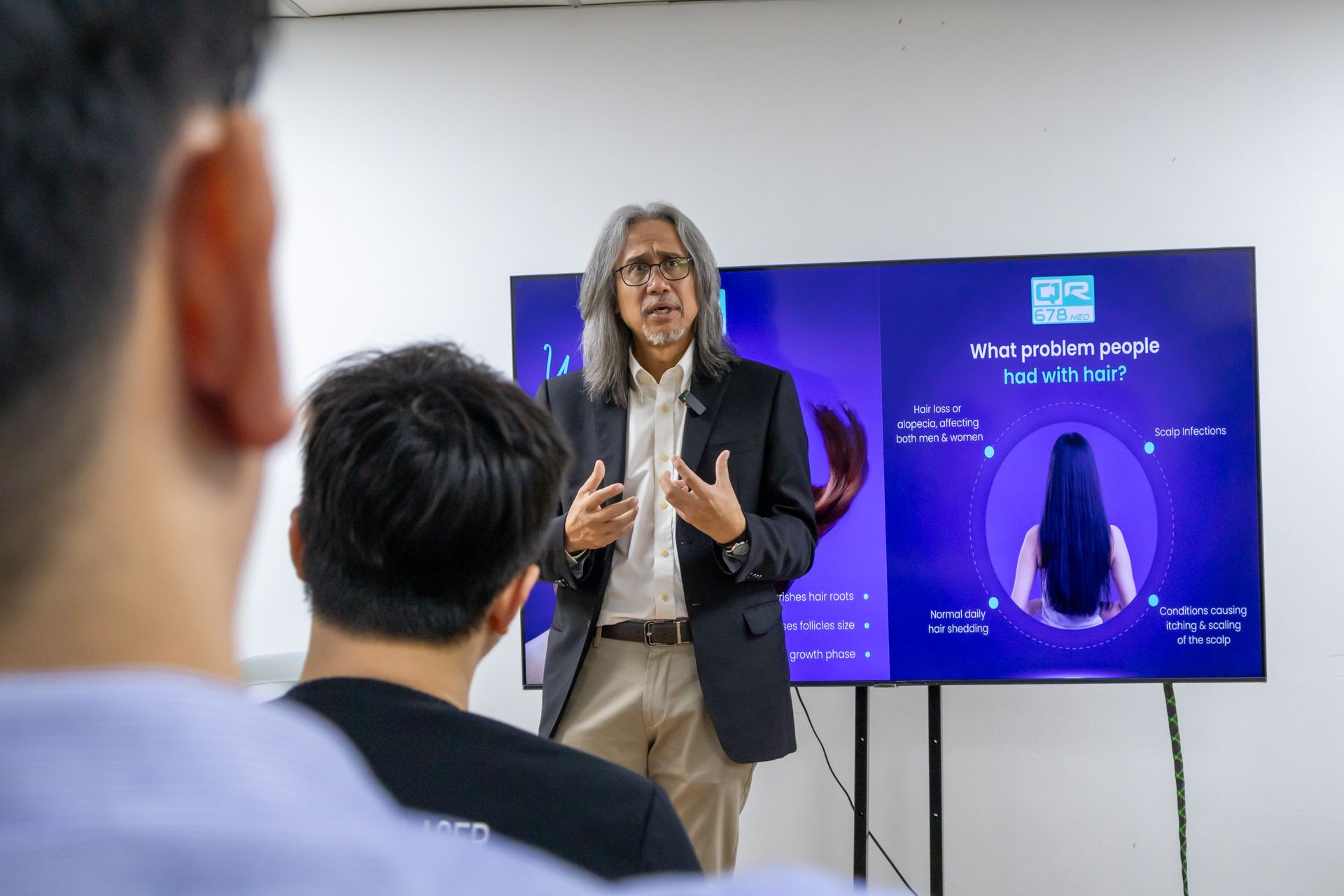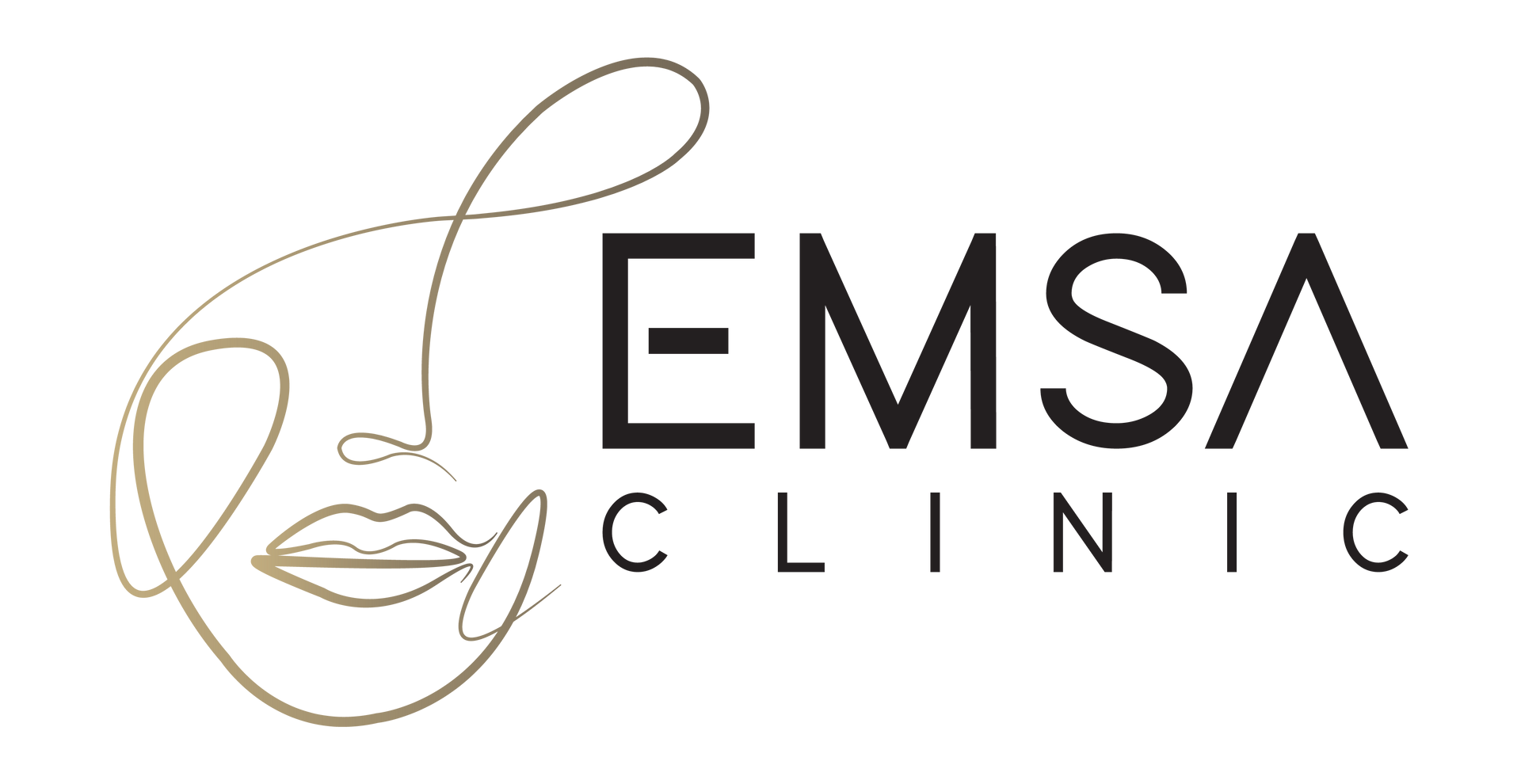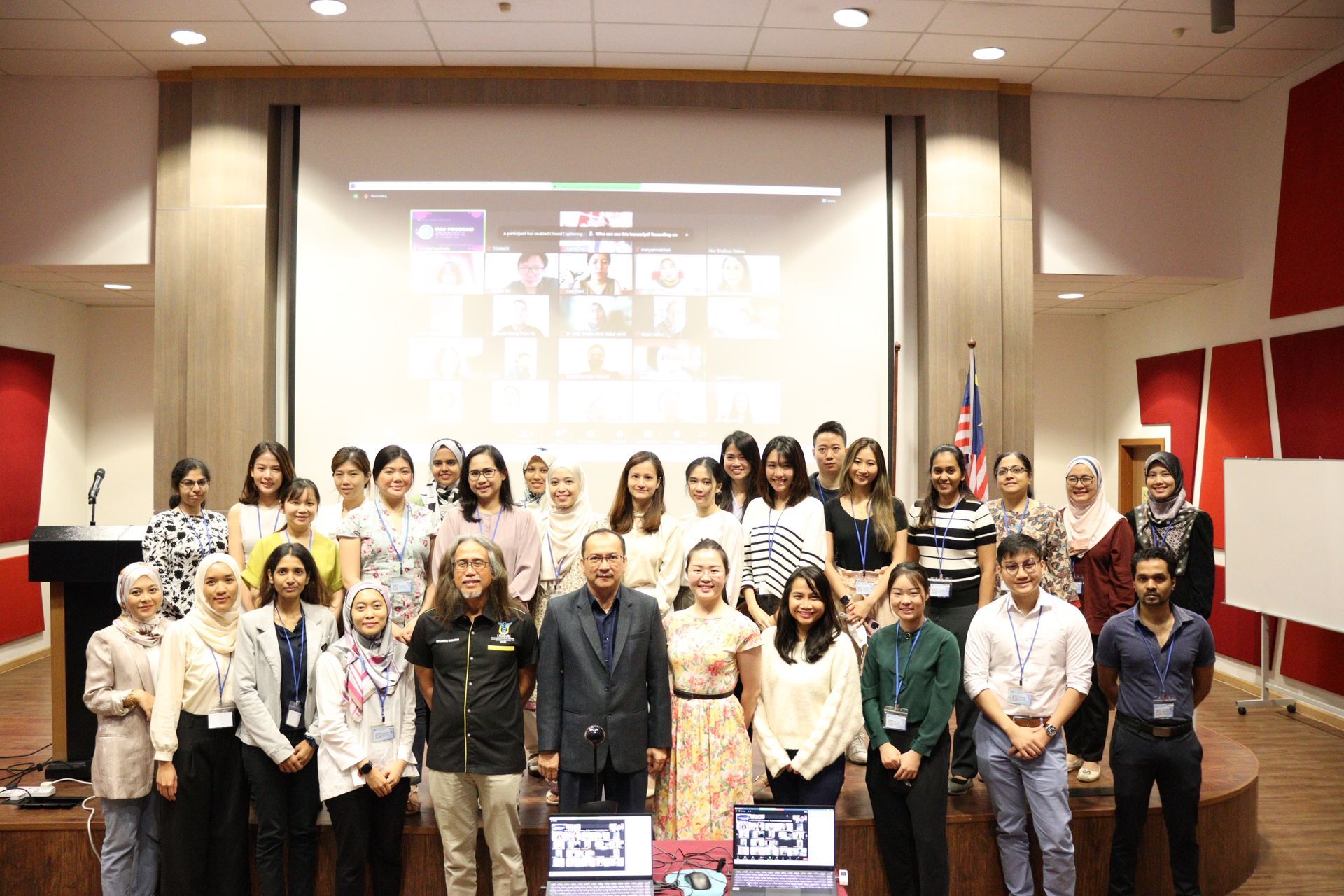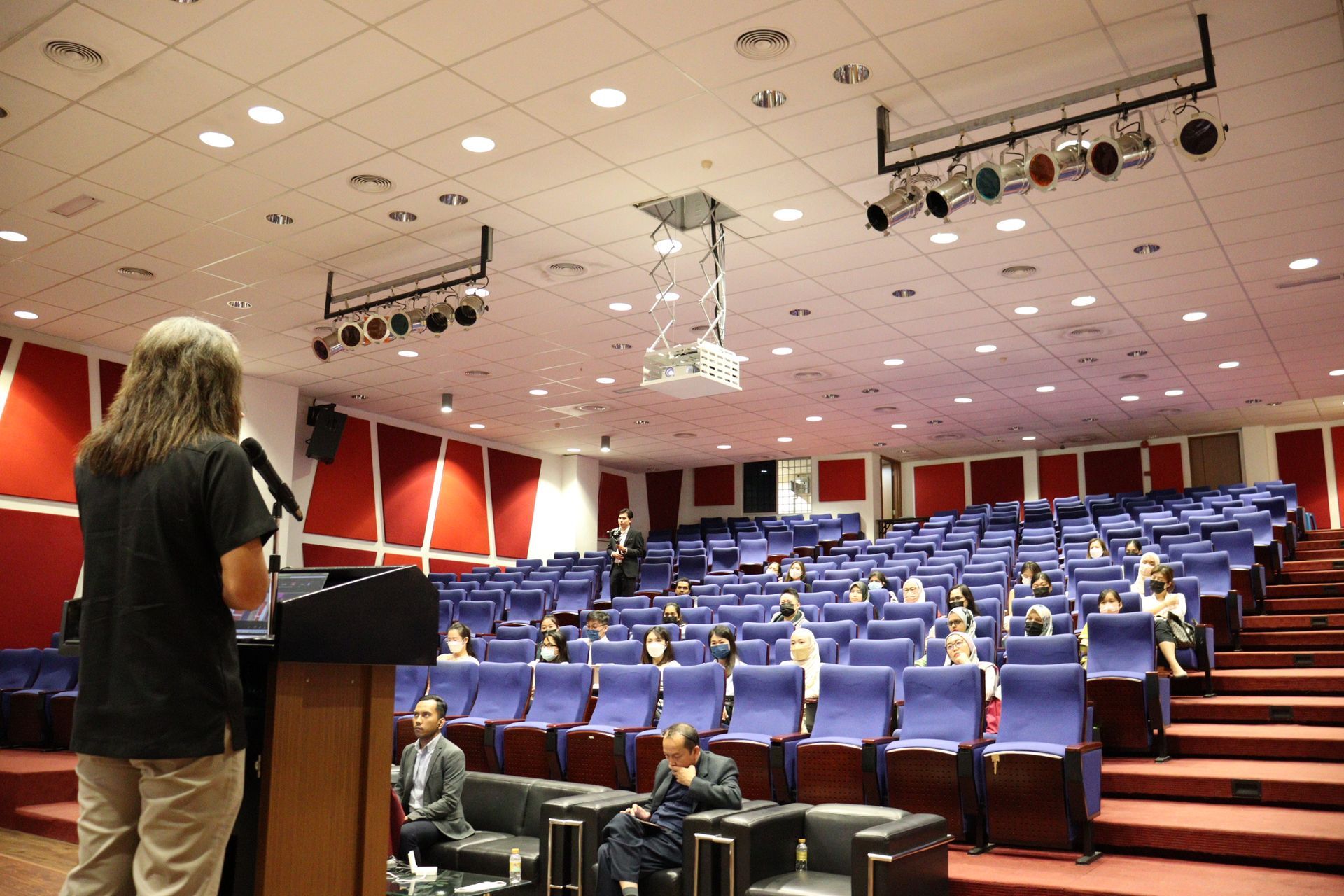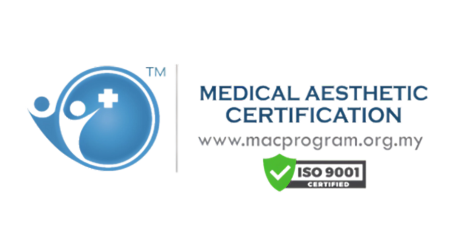TRAINING CENTER
TRAINING CENTER
Training Program That We Provide
EMSA provides conducive environment for theoretical and hands-on clinical training for medical professionals in the fields of aesthetic and regenerative medicine. The centre aims to elevate industry standards by producing competent, ethical, and research-oriented practitioners.
TRAINING CENTER
Training Centre
Training Program That We Provide
We specialized facility designed to provide education and hands-on experience in various fields of medicine. This includes doctor training, medical product development, medical equipment handling, and more. It combines theoretical knowledge with practical skills to ensure that medical professionals are well-prepared for real-world scenarios.
Training Centre
Training Program That We Provide
The MAC (Medical Aesthetic Certification) Program is a comprehensive training pathway tailored for medical practitioners who wish to expand their scope of practice by incorporating aesthetic medical procedures.
This program provides structured modules covering both theoretical knowledge and practical skills essential for safe and effective aesthetic treatments. The curriculum is developed in alignment with the recommendations set by the Education Sub-committee of Aesthetic Medical Practice under the Ministry of Health Malaysia, ensuring it meets professional and regulatory standards. Whether you are new to aesthetics or looking to enhance your expertise, the MAC Program offers a solid foundation to support your journey in this growing field.
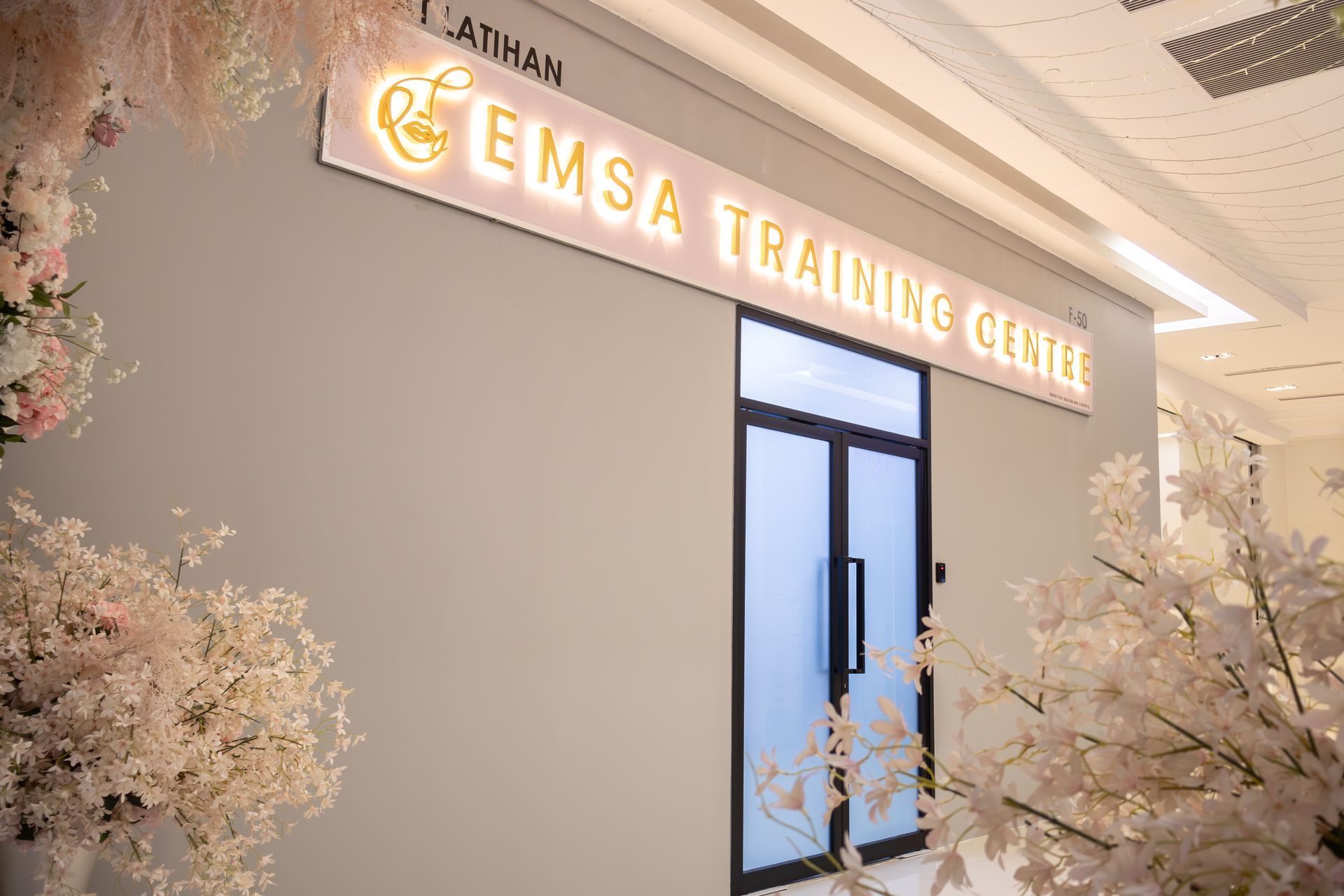
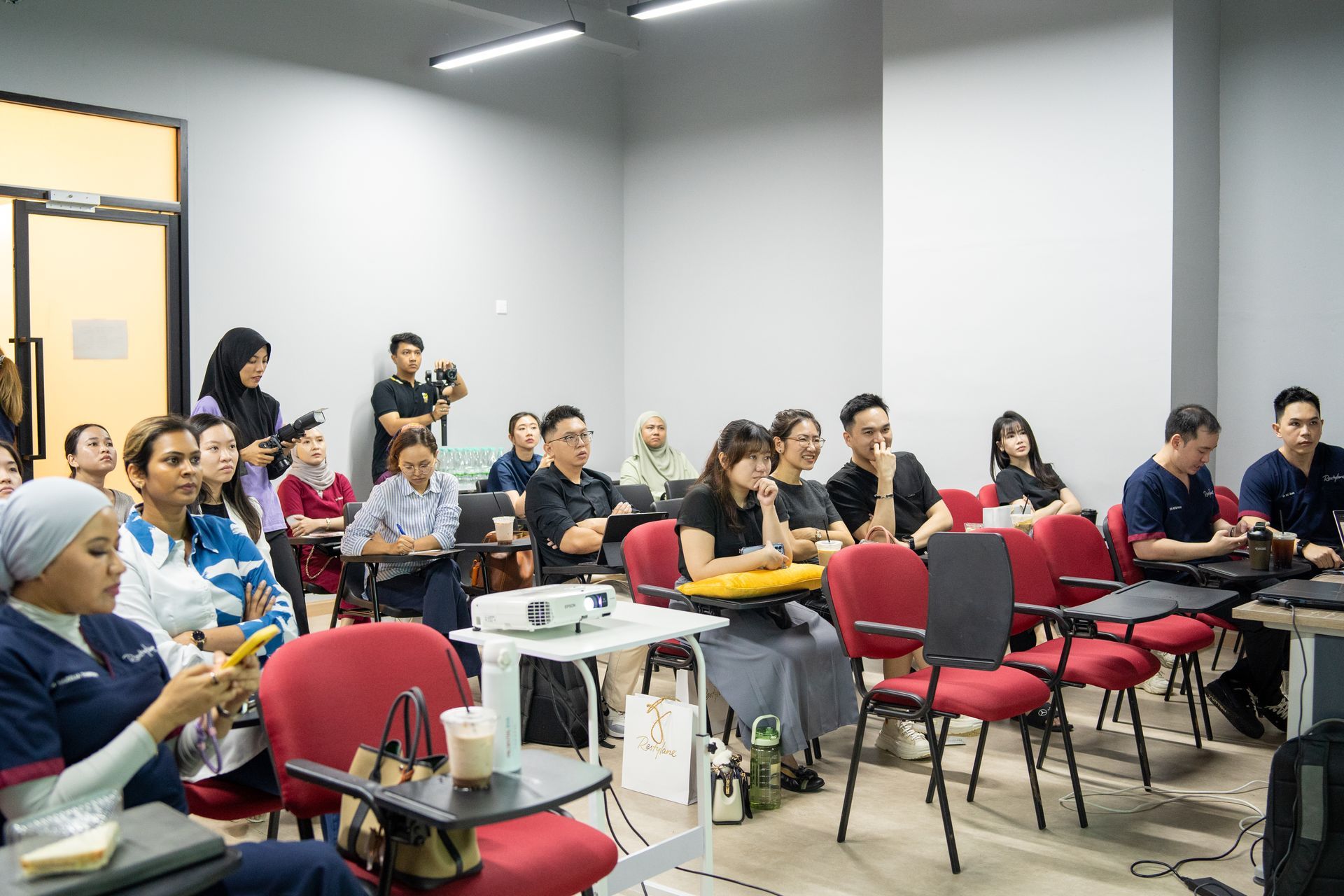
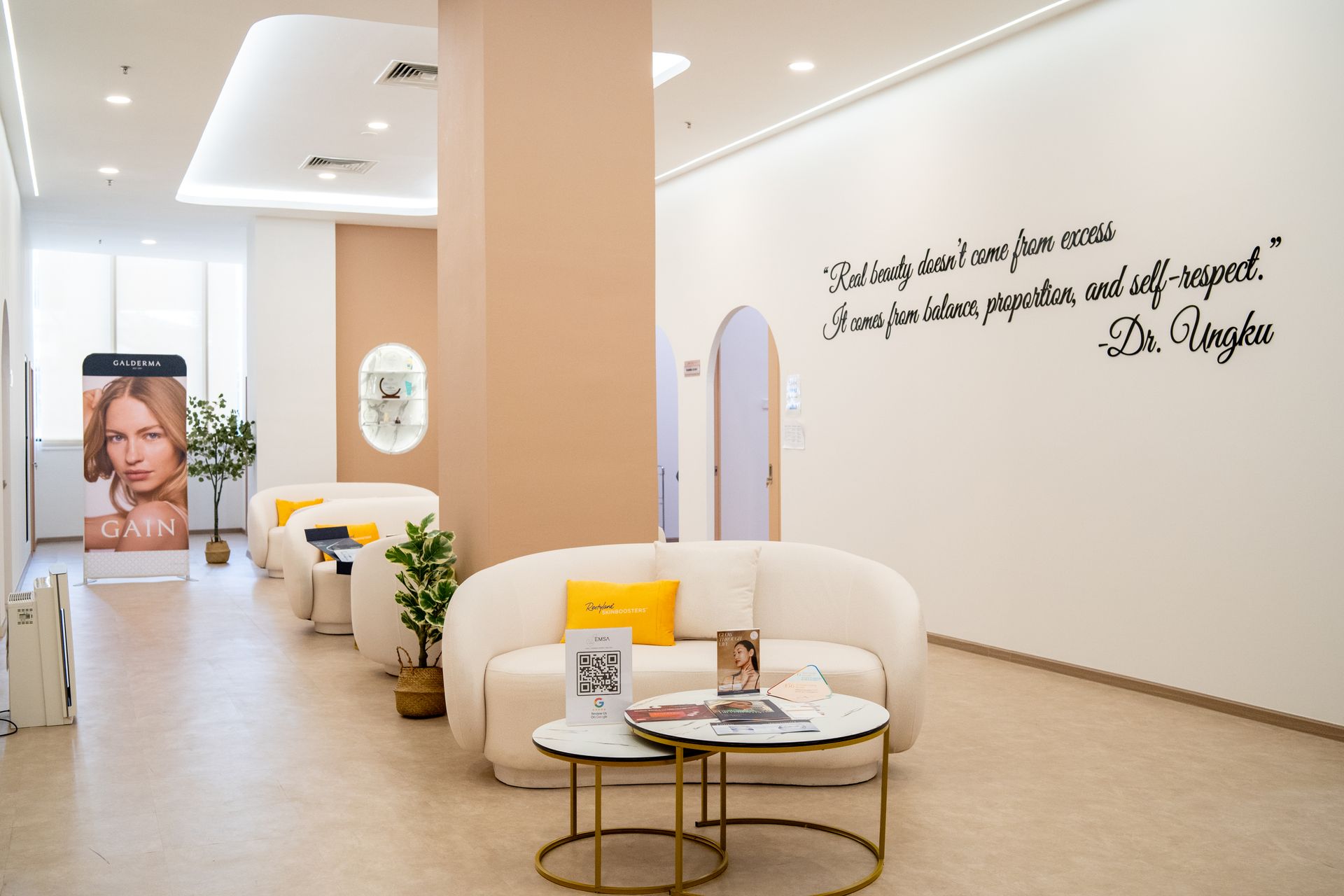
Training Centre Design & Setup
Both theoretical and practical training spaces need to be thoughtfully designed to ensure that medical trainees can focus, interact, and apply their knowledge in a controlled, supportive setting.
a. Training Centre (Theory)
Inside the training center, the theory spaces should be spacious, quiet, and conducive to learning. This includes classrooms or lecture halls equipped with the necessary tools for effective education:
- Classroom Setup: Comfortable seating with individual workspaces, arranged to allow for clear visibility of the instructor and presentation materials.
- Air Conditioning/Heating: Proper climate control for comfort.
- Audio-Visual Equipment: High-quality projectors, screens, and sound systems for clear delivery of lectures and multimedia presentations.
b. Practical Training Rooms (Practical)
Practical training spaces are designed to simulate real medical scenarios and provide hands-on experience. For medical training, this might include:
- Medical Equipment Stations: Rooms equipped with medical devices, such as mannequins, simulation tools, diagnostic equipment, and surgical tools for training.
- Practice Areas: Treatment rooms for simulated aesthetic procedures and patient care practices.
- Interactive Workstations: Stations where students can practice techniques like injection, or using aesthetic energy based devices in a controlled, guided environment.
Facilities for Theory & Practical Training
Both theoretical and practical training require supportive facilities for optimal learning. These include:
- WiFi Access: High-speed internet is essential for accessing online learning resources, research, and telemedicine applications.
- Projector & Screens: For delivering presentations, videos, and interactive learning materials. They are essential in both theory (lectures) and practical (procedural demonstrations).
- Whiteboards/Flip Charts: Useful for instructors to explain concepts interactively. These are used in both theoretical lessons for conceptual explanations and practical lessons for problem-solving.
- Comfortable Seating: In theory classrooms, ergonomic chairs for prolonged sitting are important, while in practical rooms, adjustable stools or chairs ensure comfort during hands-on activities.
- Light Refreshments: Offering tea, coffee, or light snacks in break areas helps maintain energy levels for participants, promoting a positive learning environment.
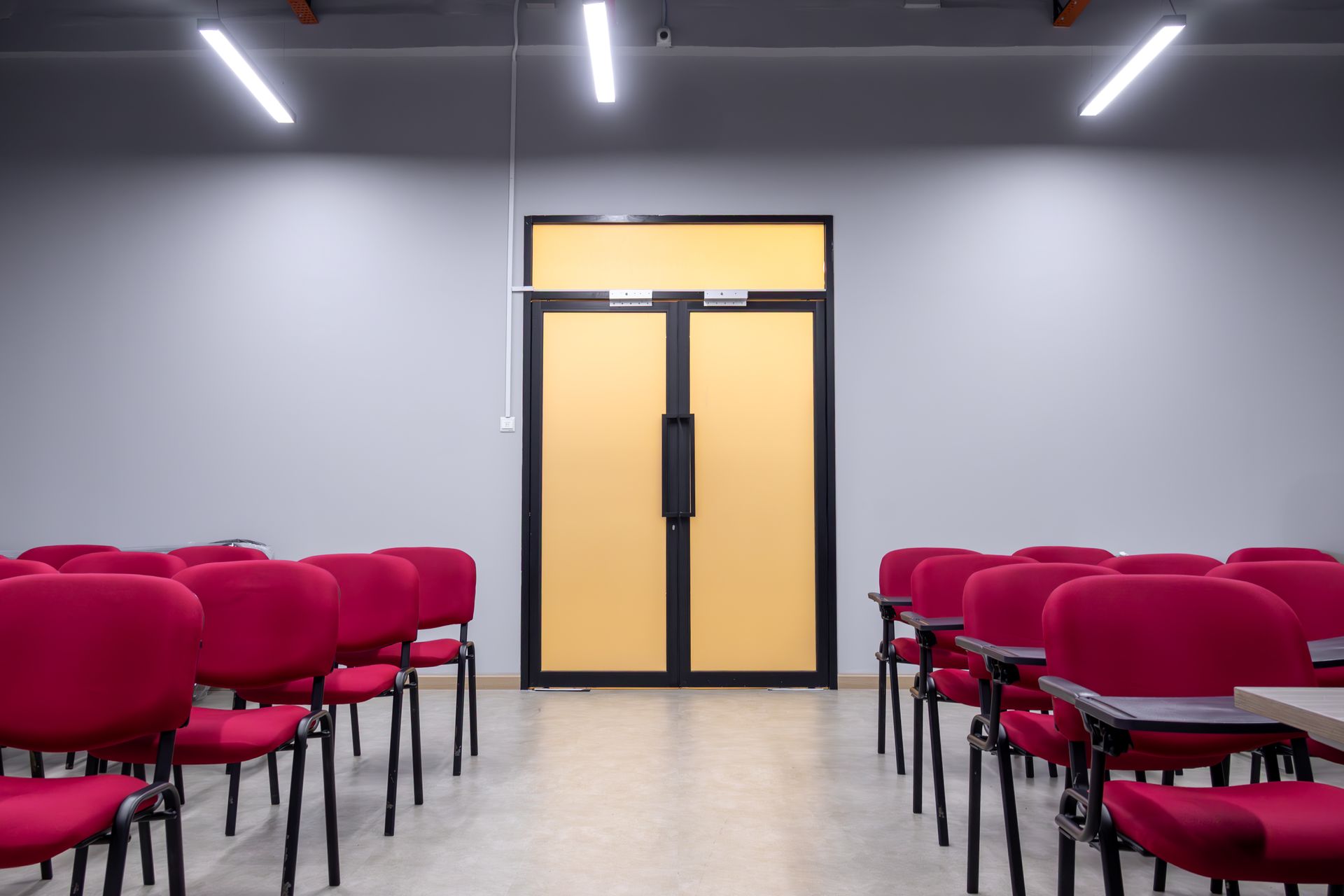
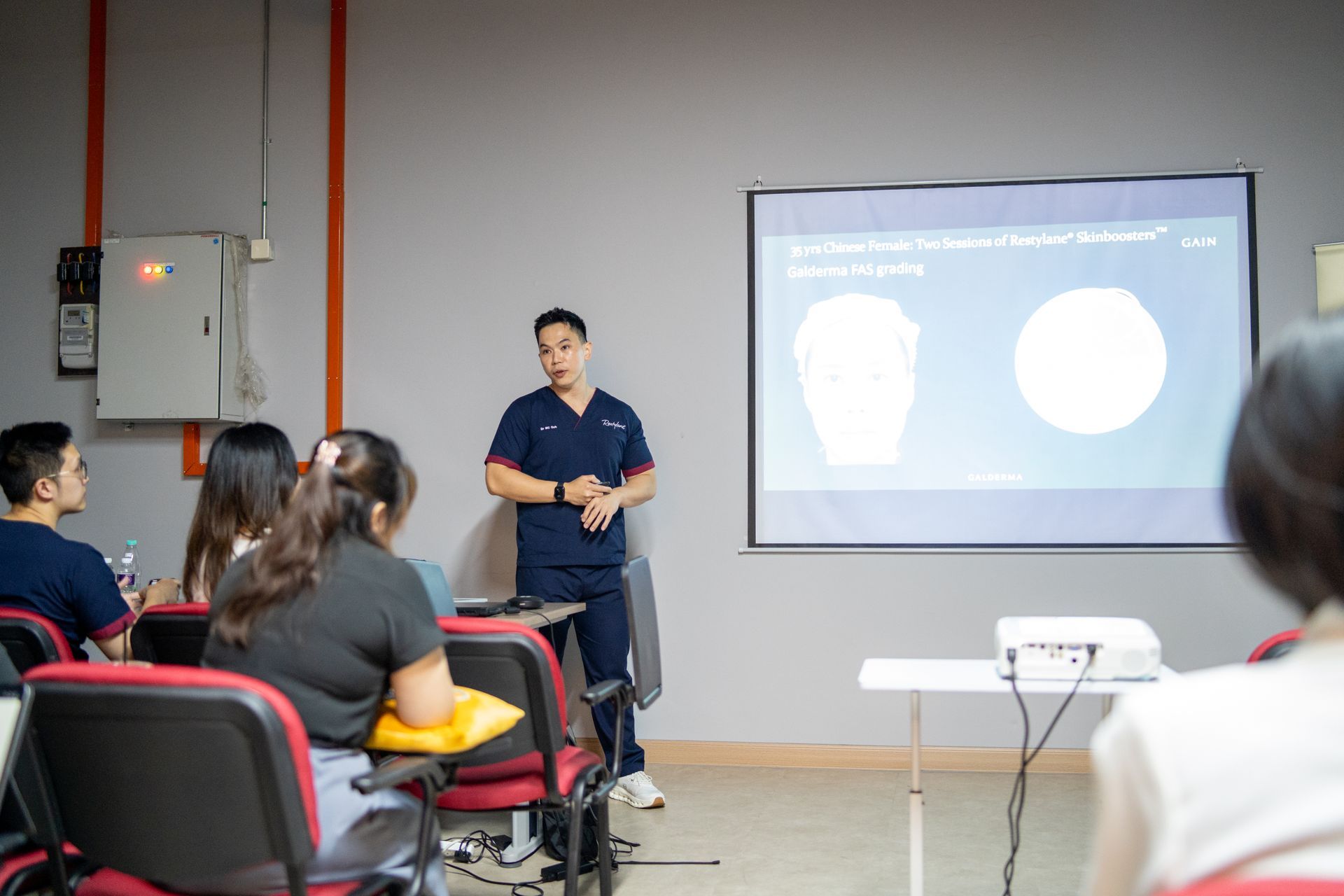
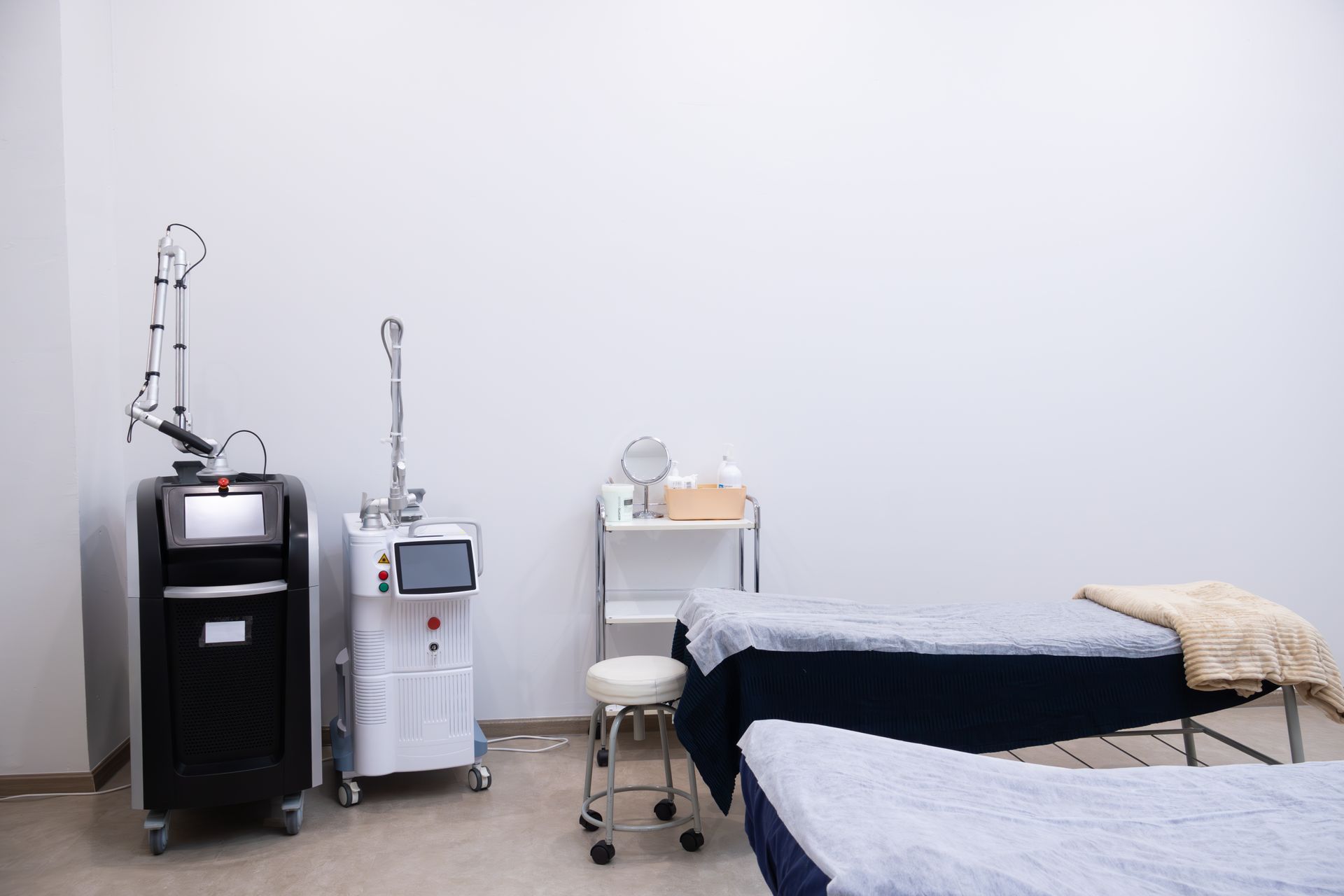
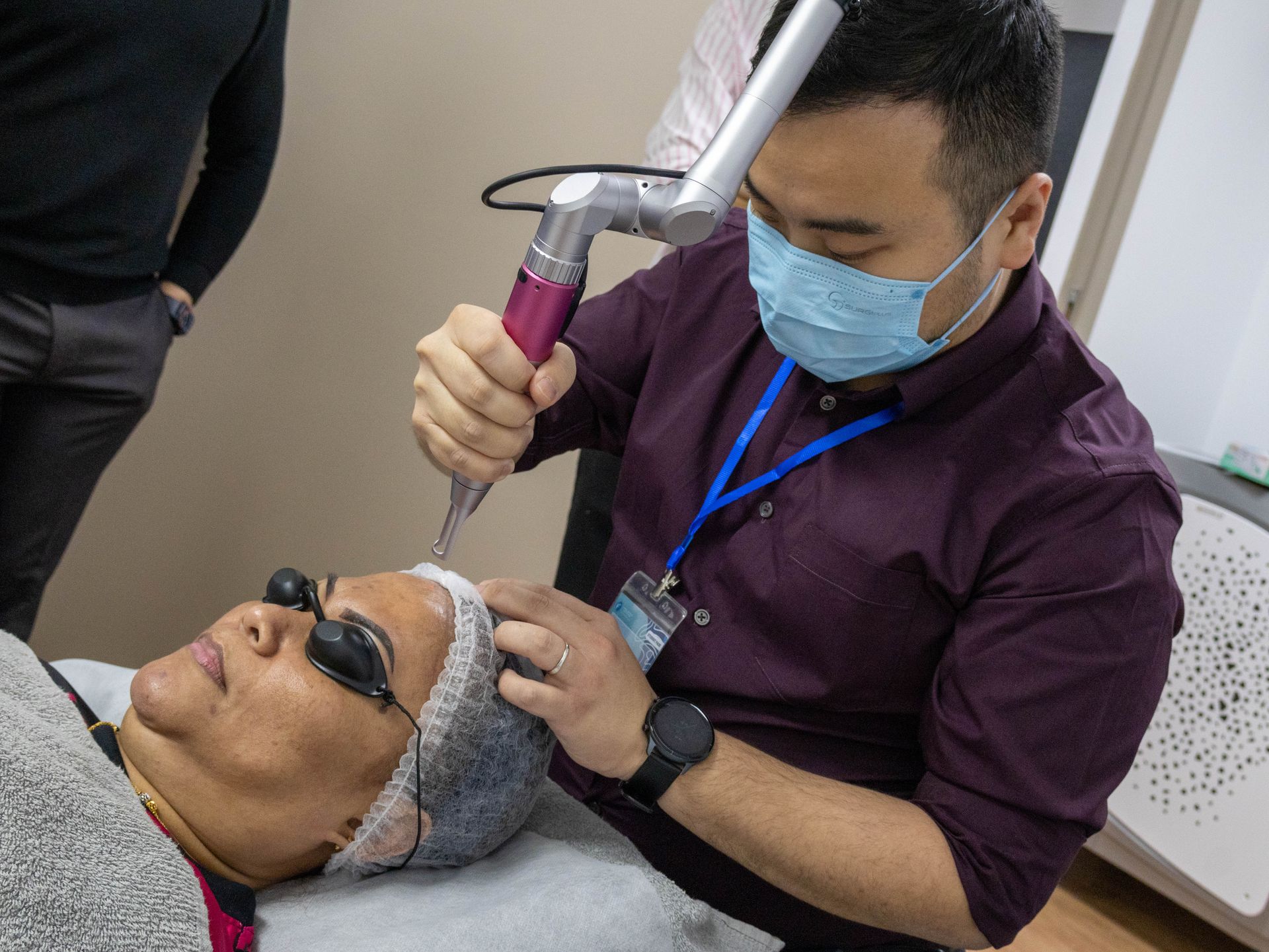
Consumables for Medical Training
A well-equipped training center must ensure that students have access to the necessary medical consumables during training. These may include:
- Medical Consumables: Items such as sterile gloves, gauze, syringes, bandages, etc., are crucial for practical training in medical procedures.
- Models and Simulators: Including lifelike anatomical models, high-fidelity manikins, and task trainers.
- Advanced Medical Equipment: Our practical training rooms feature up-to-date medical tools and simulators, so you can learn the latest techniques in a safe, controlled environment.
Staff Assistance
The presence of skilled staff adds value to both theoretical and practical training:
- Support Staff: Administrative and technical personnel who assist with the logistics of the training programs, ensuring everything runs smoothly.
- Technical Support: On-site tech support ensures that all equipment (e.g., medical devices, projectors) functions properly.
- Friendly Support Team: From expert instructors to helpful support staff, our team is here to make your learning experience seamless and enjoyable. Whether you need assistance with equipment or have questions about your training, we are ready to support you.
